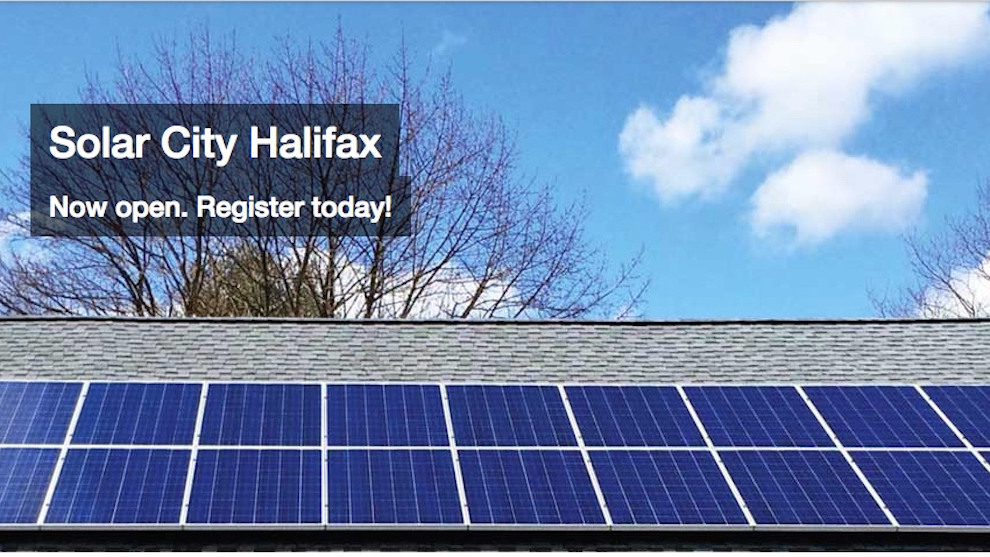Solar energy
FAQ: In the dark about Solar City?
Halifax's new energy program offers financing for solar systems, but solar is not the best option for everyone

caption
A screen capture featuring rooftop solar panels from Solar City's website.
caption
A screen capture featuring rooftop solar panels from Solar City’s website.Despite some foggy days and chilly winters, Halifax receives 25 per cent more sunlight in a year than Germany, a world leader in solar energy. The Halifax Regional Municipality is giving Halifax’s homeowners a chance to take advantage of this unique energy situation.
HRM’s Solar City program is designed to make solar energy more accessible to homeowners by offering a 10-year solar system financing plan. The program was re-launched in June after a two-year pilot project.
What’s new?
Since June, over 600 homes have qualified for Solar City financing and 20 homes are ready for solar installation. During the pilot project, 388 homes were installed with solar systems, or about one-fifth of those that were initially assessed.
Through the new program, homeowners can have solar photovoltaic, hot air and hot water systems installed and have the option to work with a range of registered contractors. The pilot project only allowed for solar hot water provided by one contractor.
This new model also accounts for individual energy use habits, helps homeowners become more conscious of their energy use and will foster competition within the solar energy market, said Adam Hayter, an energy specialist with Solar City.
“This is an opportunity for property owners to take a hold on their energy independence,” he said.
Will this work for every home?
Hayter stressed that “not every home is suitable for solar.” Solar energy efficiency depends on many factors, including individual energy use habits, structure and orientation of the home toward the sun, shade coverage and roof structure. Someone may not use enough hot water for a solar hot water system to be of value, for example.
The best way to decide if solar energy is right for you and which system is more beneficial, you must request a home assessment from a contractor.
How long will it take?
The timeline from registration to installation is flexible. It can take between two to six months in general, depending on the solar system. If homeowners are keen to participate, the process will move along more quickly.
Rayman Hopwood, an independent solar contractor, has raised questions about Solar City’s effectiveness. He says homeowners waste time registering because they must supply detailed property and proposed solar system information.
Hopwood tried to work with Solar City this summer, through his company Audela Home. He said most homeowners he spoke with do not understand the process or know how to access required information. He calls Solar City “incredibly ineffective.”
“Most people lose interest within a few weeks … they want to buy right away,” said Hopwood. “On a business standpoint, you have to put anywhere from two to six months into a customer before you get paid.”
Hayter said the five-step registration process ensures solar makes sense for the home and protects homeowners.
“The last thing you want to do is see these systems being installed without the proper processes being followed,” Hayter said.
He agreed that there are challenges when submitting an application, but encouraged contractors and homeowners to work together closely and educate themselves.
Will I save money?
Short answer: no. With Solar City, loan repayments, at 4.75 per cent interest over 10 years, are more than homeowners would save on energy. This means they will not see a payback until the solar system is completely paid for. Solar systems vary in price, but average around $10,000.
Hayter said the savings would continue for the lifespan of the system and that Solar City is working to offer other payment options.
“Really, it’s about avoiding costs,” said Hayter, “Solar systems provide that opportunity to avoid the cost of paying for utilities today and into the future.”
Hopwood disagreed.
“If someone’s selling their house, they don’t care about savings in 10 years,” said Hopwood. “If I can show (customers) they are going to save money immediately … and they’re helping the environment, it’s kind of a no brainer.”

